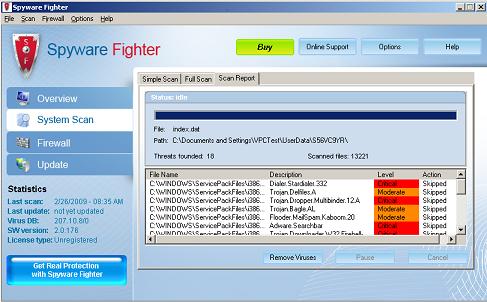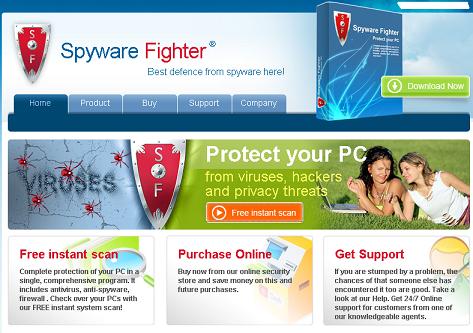Lavasoft Blog
Antispyware Pro 2009 is a new rogue anti-spyware application. It will give exaggerated threat reports on the compromised computer then ask the user to purchase a registered version to remove threats which don't exist.
When Bloomberg announced that President Obama (U.S., for those of you who may have been sleeping the past 5 months) will appoint Jon Leibowitz to head up the Federal Trade Commission, they failed to mention the potential security benefit for computer users. Here at Lavasoft, we nod our collective heads in approval of this appointment.
Those located in the US will likely have tax preparation on their minds in the coming weeks…and, likewise, that topic will also be of major interest to spammers and scammers looking to exploit the upcoming April 15 filing deadline. Recent reports are already confirming a rise in phishing messages purporting to come from the U.S. Internal Revenue Service, aimed at tricking taxpayers into falling for a scam.
Lavasoft Malware Labs recently had a closer look on an IP range full of hoax sites. Reverse IP on 78.129.142.235 will reveal around 200 fraudulent domains which are hosted in United Arab Emirates. Most of the sites hosted under 78.129.142.235 will use and take advantage of already existing products from the security industry and other popular software. The examples below display their way to make illegal domains look reliable.
hxxp://7zip-2009.info
hxxp://Directx-full.info
hxxp://Icq-full.info
hxxp://Messengerplus-2009.info
hxxp://Safari-full.info
hxxp://Winrar-2009.com
hxxp://Www-kaspersky.info
Today a new rogue was discovered called Spyware Fighter. It is following the normal patterns with false detections and trying to scare the user into buying a license to clean them.

Further it has the classic user friendly home page available under a few similar named domains.

SpywareFighter was added to detection in release 0146.0017.
Not to be missed news – in the March 2009 issue of (IN)SECURE Magazine, a digital security mag that takes on today’s hottest information security topics, there are two contributions from Lavasoft that make for an interesting read.
For your reading pleasure, take a look at our CEO Jason King’s interview with (IN)SECURE’s Chief Editor, Mirko Zorz. You’ll also find an article by Lavasoft malware analyst, Pekka Andelin, that explores the ins and outs of ISP level malware filtering.
Not too long ago, we called on our Ad-Aware users to write in with their thoughts and stories of what our software has meant to them over the past decade.
We're humbled and flattered - not to mention extremely appreciative - of all of the e-mails that have poured in to help celebrate Lavasoft's 10th year in the anti-spyware industry. We'd like to share a few of these stories with you:
Some new rogue anti-virus programs to be aware of...First out is XPVirusProtection with a standard looking website.

Think identity theft can't happen to you? If you're a woman, your odds of being an identity theft victim may be higher just by virtue of being female.
According to statistics from a new study, women are 26% more likely than men to be fraud victims. Reuters reports a few other interesting bits of data from the Javelin Research fraud study, which was released at the start of the week:
We've all heard that China has a bad reputation for being one of the global hotspots for malware distribution, but we should remember that the computer users there are victims as well.
Our CEO, Jason King, is in China right now, and has some very interesting statistics coming out of the security industry there.
When compared to the rest of the world:
- 26% of virus infected PCs are located in China
- 81% of individual PC users currently have malware on their machines
- 80% of Chinese enterprises have been a victim of an external malware attack
- Surveys show rapid deterioration in the situation in China
- Over 65% of Chinese PCs users reported account theft and information hijack between 2003-2007
- There was an approximate 2100% increase in malware attacks toward servers 2003-2007
So, while there is a host of malware coming out of that market, they are certainly not immune to the effects.
Source: www.antivirus-china.org.cn






